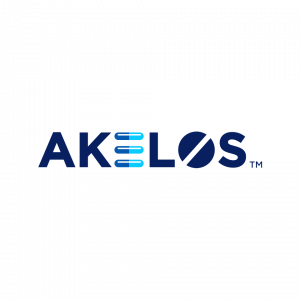
In a just published study in the journal Nature, three research teams identify the binding site in human HCN1 (hHCN1) ion channel.
NEW YORK, NY, USA, August 20, 2024 /EINPresswire.com/ — In a just published study in the journal Nature, research teams at Weill Cornell Medicine, the University of Miami, and Linköping University, Sweden, report having identified the binding site for the alkylphenol general anesthetic 2,6-di-iso-propylphenol (a.k.a., propofol) on the human HCN1 (hHCN1) ion channel.
The study’s lead authors are Dr. Crina Nimigean, professor of physiology and biophysics in anesthesiology at Weill Cornell Medicine, and Dr. Peter Larsson, a professor in the department of biomedical and clinical sciences at Linköping University.
Study co-author Dr. Peter Goldstein and his lab have previously demonstrated 2,6-di-iso-propylphenol, as well as its non-anesthetic congener 2,6-di-tert-buylphenol (2,6-DTBP), effectively relieves neuropathic pain resulting from peripheral nerve injury. 2,6-DTBP is the basis of Akelos’s peripherally-restricted non-narcotic antihyperalgesic lead molecule BP4L-18:1:1.
“Using cryoelectron microscopy along with other high-resolution approaches, the study identified the binding site for a clinically important class of molecules that target the human HCN1 ion channel. The findings will guide efforts for novel drug development for poorly treated neurologic disorders in which HCN1 channels play a role. By further defining the underlying mechanism of action of propofol, these results will also support Akelos’ efforts to submit an IND application to the FDA for first-in-human trials with AKE-1018 with the aim of treating neuropathic pain,” says Dr. Goldstein, who is scientific co-founder and a scientific advisory board member of Akelos, Inc. He is also an inventor on patents related to the use of 2,6-DTBP and its derivatives to treat neuropathic pain, which have been licensed by Cornell University to Akelos, Inc.
Says Akelos founder Dr. Steven Fox, “BP4L-18:1:1 effectively relieves peripheral neuropathic pain and does so with an excellent safety profile. The study’s findings strengthen our ability to introduce it into clinical practice. The authors of the Nature paper are to be congratulated on an outstanding achievement.”
Forward-Looking Statement
This press release contains forward-looking statements. These forward-looking statements are based on management’s expectations and are subject to certain factors, risks and uncertainties that may cause actual results, outcomes of events, timing and performance to differ materially from those expressed or implied by such statements.
These statements include, among others, those related to: the results of research and development activities, uncertainties relating to preclinical and clinical testing, the cost, timing and outcome of the regulatory development and approval process, our budgets, expenditures and financing plans, our need for substantial additional funds, patent and intellectual property matters, our dependence on third parties, including contract research and contract clinical trial organizations, and market opportunity and competition.
The information contained in this press release is believed to be current as of the date of original issue. Akelos, Inc. expressly disclaims any obligation or undertaking to release publicly any updates or revisions to any forward-looking statements contained herein to reflect any change in our expectations with regard thereto or any change in events, conditions or circumstances on which any such statements are based.
Steven Fox
akelos inc
+1 917-747-2006
email us here
Legal Disclaimer:
EIN Presswire provides this news content “as is” without warranty of any kind. We do not accept any responsibility or liability
for the accuracy, content, images, videos, licenses, completeness, legality, or reliability of the information contained in this
article. If you have any complaints or copyright issues related to this article, kindly contact the author above.
![]()
Originally published at https://www.einpresswire.com/article/736916070/alkylphenol-binding-site-identified-in-human-hcn1-channels



